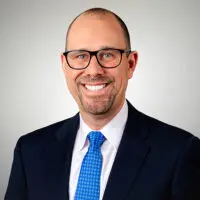Publication
DOJ Incentivizes Voluntary Self-Disclosure of Corporate Criminal Misconduct in Policy Directive to U.S. Attorneys’ Offices Nationwide
By James P. Melendres and Alexa Salari
On February 22, 2023, the Department of Justice (“DOJ”) announced that all 93 United States Attorneys’ Offices throughout the country are implementing, effective immediately, a Voluntary Self-Disclosure Policy (“Policy”) for corporate criminal misconduct.1 The Policy strongly encourages prompt voluntary self-disclosures and cooperation by promising more lenient resolutions (including declinations) and reduced penalties for companies that timely self-report misconduct.2
This legal alert discusses the elements of a voluntary self-disclosure (“VSD”), the potential benefits to making a VSD, a brief history about the Policy, and key takeaways.
Elements of a VSD
In order to qualify for the incentives set forth in the Policy, a company’s VSD must be (1) voluntary, (2) timely, and (3) include all relevant facts.
1. Voluntary
A company’s disclosure must be made voluntarily. A disclosure, however, will not be considered a VSD, “where there is a preexisting obligation to disclose, such as pursuant to regulation, contract, or a prior [DOJ] resolution (e.g., non-prosecution agreement or deferred prosecution agreement)” or where disclosure of a company’s misconduct “was made by whistleblowers, including those who have informed the [DOJ] of fraud and other misconduct in qui tam actions.”3
2. Timely
A company’s disclosure must be made timely, which means it is made:
- “Prior to an imminent threat of disclosure or government investigation,” U.S.S.G. § 8C2.5(g)(1);
- Prior to the misconduct being publicly disclosed or known to the government; and
- Within a reasonably prompt time after the company becomes aware of the misconduct, with the burden being on the company to demonstrate timeliness.4
3. Includes all Relevant Facts
A company’s disclosure must include “all relevant facts concerning the misconduct that are known to the company at the time of the disclosure.”5 Because a company may not be in a position to know all relevant facts at the time of a VSD, “a company should make clear that its disclosure is based upon a preliminary investigation or assessment of information, but it should nonetheless provide a fulsome disclosure of the relevant facts known to it at the time.”6
The United States Attorney’s Office (“USAO”) also expects a company to “move in a timely fashion to preserve, collect, and produce relevant documents and/or information, and provide timely factual updates to the USAO.”7 If a company conducts an internal investigation, the USAO expects “appropriate factual updates as that investigation progresses.”8
Notably, each respective USAO retains sole discretion in determining whether a disclosure constitutes a VSD and does so on a case-by-case basis.9
Potential Benefits to a VSD
Absent the presence of an aggravating factor, described below, the USAO “will not seek a guilty plea” if a company:
- Meets the above VSD requirements;
- Fully cooperates; and
- Timely and appropriately remediates the criminal conduct.10
In instances where a company satisfies these conditions, a criminal resolution may include “a declination, non-prosecution agreement, or deferred prosecution agreement” or the USAO may “choose not to impose a criminal penalty” at all.11 The USAO also will not require a company to yield to an independent compliance monitor if it can demonstrate “at the time of resolution that it has implemented and tested an effective compliance program.”12
The USAO will rely on “operative provisions of the Justice Manual and [DOJ] policy” in evaluating whether a company has fully cooperated and timely and appropriately remediated the criminal conduct.13 Appropriate remediation must include, but is not limited to, “the company agreeing to pay all disgorgement, forfeiture, and restitution resulting from the misconduct at issue.”14 And in evaluating whether a company has implemented and tested an effective compliance program, the USAO will refer to the Deputy Attorney General’s September 15, 2022 memorandum regarding corporate criminal enforcement policies, referred to as the “Monaco Memo.”15 This evaluation must consider resources either developed by the DOJ’s Criminal Division to assist prosecutors in assessing the effectiveness of a company’s compliance program or guidance provided by other DOJ components as to specialized areas of corporate compliance.16
As with any policy, however, there are exceptions. The following non-exhaustive list of aggravating factors may warrant the USAO seeking a guilty plea if the misconduct:
- Poses a grave threat to national security, public health, or the environment;
- Is deeply pervasive throughout the company; or
- Involved current executive management of the company.17
Even so, the presence of an aggravating factor does not mean a guilty plea is required.18 Instead, the USAO will assess “the relevant facts and circumstances” to determine an appropriate resolution.19 Indeed, even if there is an aggravating factor and a guilty plea is warranted for a company that has voluntarily self-disclosed, fully cooperated, and timely and appropriately remediated the criminal conduct, the USAO:
- Will recommend to a sentencing court a reduction of at least 50%, and up to 75%, off the low end of the U.S. Sentencing Guidelines fine range after any applicable reduction under U.S.S.G. § 8C2.5(g), or the penalty reduction benefit set forth in the alternate VSD policy specific to the misconduct at issue, if applicable;20 and
- Will not require appointment of an independent compliance monitor if the company has, at the time of resolution, demonstrated that it has implemented and tested an effective compliance program.21
More About the Policy
The Policy was developed pursuant to the Monaco Memo, which instructed each DOJ component that prosecutes corporate crime to draft and publish a voluntary self-disclosure policy if it did not already have a written, formal policy.22 In turn, the Attorney General’s Advisory Committee requested that the White Collar Fraud Subcommittee develop such a policy.23
Key Takeaways
- The Policy’s goal is to provide transparency and predictability to companies facing corporate criminal investigations by United States Attorneys’ Offices.
- To receive maximum benefit under the Policy, a company must voluntarily self-disclose criminal conduct early, fully cooperate, and timely and appropriately remediate the criminal conduct.
- The USAO will determine, at its “sole discretion” and on a “case-by-case basis,” whether a company must submit to an independent compliance monitor.24 Therefore, it is important that a company has an existing and effective compliance program.
- Companies and outside counsel will need to discuss the benefits of a VSD on a case-specific basis.
Footnotes
-
See “Damian Williams and Breon Peace Announce New Voluntary Self-Disclosure Policy for United States Attorney’s Offices (hereinafter “Press Release”),” (Feb. 22, 2023), available at https://www.justice.gov/usao-edny/pr/damian-williams-and-breon-peace-announce-new-voluntary-self-disclosure-policy-united; “United States Attorneys’ Offices Voluntary Self-Disclosure Policy (hereinafter “Text of Policy”),” (last visited March 6, 2023), available at https://www.justice.gov/d9/press-releases/attachments/2023/02/22/usao_voluntary_self-disclosure_
policy_0.pdf. -
See Press Release and Text of Policy.
-
Text of Policy at 3 & n.6.
-
Id. at 3.
-
Id. at 4.
-
Id.
-
Id.
-
Id. (citing Justice Manual § 9-28.700).
-
See Text of Policy at 3.
-
Id. at 4.
-
Id. at 4 & n.7, and at 5.
-
Id. at 5.
-
Id. at 4 & n.7; see, e.g., Memorandum from Deputy Attorney General Lisa O. Monaco, “Further Revisions to Corporate Criminal Enforcement Policies Following Discussions with Corporate Crime Advisory Group (hereinafter “Monaco Memo”),” (Sep. 15, 2022), available at https://www.justice.gov/opa/speech/file/1535301/download, and Memorandum from Deputy Attorney General Lisa O. Monaco, “Corporate Crime Advisory Group and Initial Revisions to Corporate Criminal Enforcement Policies,” (Oct. 28, 2021), available at https://www.justice.gov/d9/pages/attachments/2021/10/28/2021.
10.28_dag_memo_re_corporate_enforcement.pdf. -
Text of Policy at 5.
-
Id.; see Monaco Memo.
-
Text of Policy at 5; see, e.g., “U.S. Department of Justice Criminal Division Evaluation of Corporate Compliance Programs,” (updated March 2023), available at https://www.justice.gov/criminal-fraud/page/file/937501/download.
-
Text of Policy at 4.
-
Id.
-
Id.
-
Note, “In cases where the company is being jointly prosecuted by a USAO and another [DOJ] office or component, or where the misconduct reported by the company falls within the scope of conduct covered by VSD policies administered by other [DOJ] offices or components, the USAO will coordinate with, or, if necessary, obtain approval from, the [DOJ] component responsible for the VSD policy specific to the reported misconduct when considering a potential resolution and before finalizing any resolution. Consistent with relevant provisions of the Justice Manual and as allowable under alternate VSD policies, the USAO may choose to apply any provision of an alternate VSD policy in addition to, or in place of, any provision of this policy.” Text of Policy at 2 (citations omitted).
-
Text of Policy at 5.
-
Press Release and Text of Policy; Monaco Memo at 7.
-
Press Release.
-
Text of Policy at 5.
About Snell & Wilmer
Founded in 1938, Snell & Wilmer is a full-service business law firm with more than 500 attorneys practicing in 17 locations throughout the United States and in Mexico, including Los Angeles, Orange County, Palo Alto and San Diego, California; Phoenix and Tucson, Arizona; Denver, Colorado; Washington, D.C.; Boise, Idaho; Las Vegas and Reno, Nevada; Albuquerque, New Mexico; Portland, Oregon; Dallas, Texas; Salt Lake City, Utah; Seattle, Washington; and Los Cabos, Mexico. The firm represents clients ranging from large, publicly traded corporations to small businesses, individuals and entrepreneurs. For more information, visit swlaw.com.


